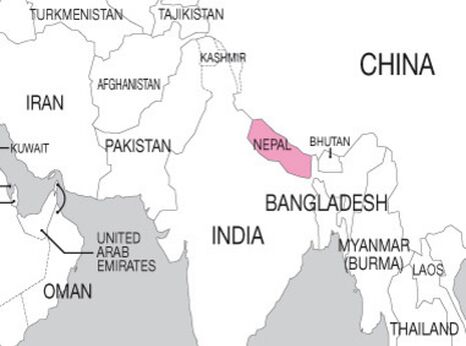Nepal: Lack of a second dose endangers over 1.4 million

Over 1.4 million people in Nepal, most of them over 65 years of age and considered to be in high-risk groups took their 1st dose of the Oxford-AstraZeneca Covid-19 vaccine between 7 and 15 March. They were initially due have their 2nd dose 8-12 weeks later. However, with no supply to administer the doses by 6 June, Nepal extended the timeline from 12 to 16 weeks therefore, the 1.4 million people must have their second dose between 27 June and 5 July.
Still facing acute shortages of supply, Nepal will not meet this commitment without international support. Not only is the right to health and life of these people at risk, due to a deadly wave of Covid-19 sweeping the country, but these first doses administered could have to be repeated to achieve full immunization if they wait too long.
Amnesty International’s briefing ‘Struggling to Breathe- The Second Wave of Covid-19 in Nepal’, documents the public health crisis faced by Nepal since April 2021 as the second wave of Covid-19 in the country wreaked havoc on its fragile health system. Immediate action is needed from both the government of Nepal and the international community to support the health care system, which is teetering on the edge of collapse. Nepal, like other countries across South Asia, is also facing a drastic shortage of vaccines. To date, Nepal has only vaccinated less than three percent of its population with second doses, while other countries that could potentially donate the needed vaccines enjoy high-vaccination coverage. For example, 60% of the UK population and 53% of people in the USA have received at least one dose to date. COVAX, a global initiative to help low- and middle-income countries access vaccines is falling short of its commitments to provide vaccines.
Many people have lost lives due to the unavailability of medical oxygen, or from being turned away from overwhelmed hospitals that were already struggling with shortages of hospital beds, human resources, and essential medical supply. While public health experts believe that the number of deaths is being underestimated, as of 16 June, 8,558 Covid-19 deaths had been registered in Nepal according to government figures, with the Institute for Health Metrics and Evaluation (IHME) projecting a total of 34,887 deaths by 1 September 2021.
The international community must fulfil their obligation to ensure international cooperation by joining and adequately supporting global mechanisms such as COVAX thereby enabling all countries, including low-income ones such as Nepal, to have adequate supplies of vaccines to protect their entire populations in a timely manner. States must cooperate globally and remove any potential barriers to ensure that vaccines are developed, manufactured insufficient supply, and then distributed in a timely and inclusive manner around the globe.
States must ensure that intellectual property rights do not prevent any countries from upholding the right to health. This includes agreeing to a ‘waiver’ on certain aspects of the TRIPS agreement for the production of COVID-19 health products, supporting the WHO’s COVID-19 Technology Access Pool (C-TAP), and placing conditions on public funding to ensure pharmaceutical companies share their innovations, technology and data with other manufacturers. States also must assess and make any necessary adjustments to their intellectual property laws, policies and practices to ensure that these do not form a barrier to Covid-19 health products for all people globally including in countries facing a surge in cases like Nepal.